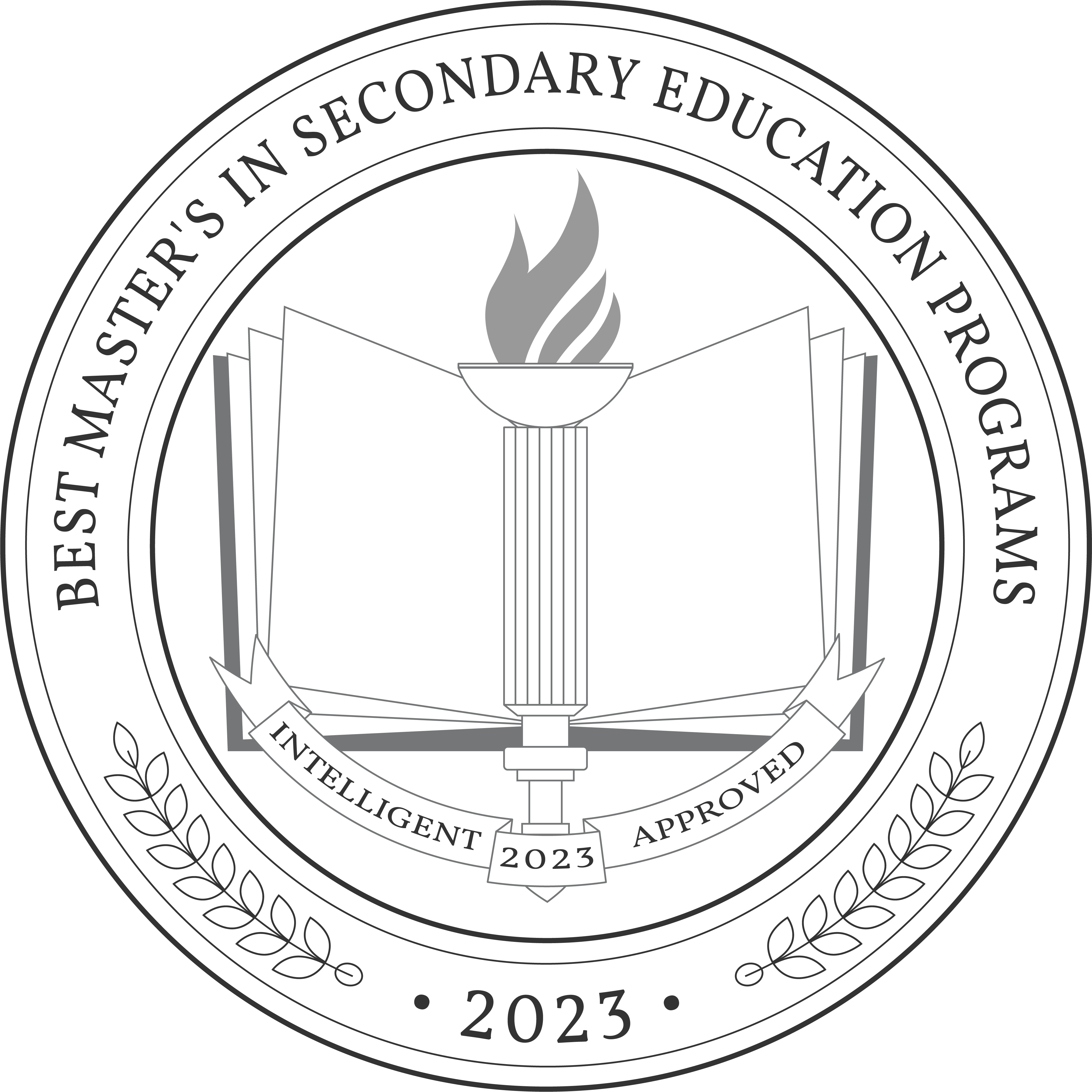Why This Matters
-
24+ MILLION STUDENTS AGE 12 THROUGH 17
The U.S. had 24 million students between ages 12 and 17 in 2019, and that figure is growing slowly. By 2029, more than 25 million students are expected to be in this age group.
-
MORE THAN 40,000 ADDITIONAL HIGH SCHOOL TEACHERS ARE NEEDED
According to the Bureau of Labor Statistics, high school teaching jobs will grow by 4% from 2019 to 2029. That should create 40,200 more positions for secondary educators by 2029.
-
EARN MORE WITH A MASTER’S DEGREE IN 88% OF DISTRICTS
An advanced degree generally leads to more pay in the teaching field. According to the National Council on Teacher Equality, 88% of school districts pay teachers who have advanced degrees higher salaries.
Our Research
We looked at many Master’s in Secondary Education degree programs, including Master of Arts in Teaching (MAT) and Master of Education (MEd) degrees. Our list contains online, hybrid, and dual-mode programs.
All of these programs are regionally accredited, and many are also accredited by the Council for the Accreditation of Educational Programs (CAEP). Attending an accredited program ensures the quality and acceptance of your degree program.
We evaluated each program on the basis of flexibility, faculty, course strength, cost, and reputation. Then we calculated the Intelligent Score for each program on a scale from 0 to 100. For a more extensive explanation, check out Our Ranking Methodology.
- 74 hours to write this article
- 166 universities and colleges we assessed
- 263 education programs we compared
The Top 50 Master’s in Secondary Education Degree Programs

Discover More Options
What You Should Know About This Degree
Secondary education is generally a bachelor-level entry field, although a few states require teachers to obtain a master’s degree. State requirements for public school teacher certification vary, and you should make sure a program meets your state’s requirements before applying. A few states only accept programs accredited by the CAEP, although this is the exception rather than the rule.
Some of these master’s programs are designed for individuals who aren’t yet teaching, while other programs are intended for individuals who have teaching experience and/or certification. You should choose a program that’s well-suited to your academic and professional background.
The Master’s in Secondary Education is different from the Master’s in Elementary Education, which prepares individuals for teaching kindergarten through sixth grade. Alternatively, you can also pursue a subject-focused educational degree, such as a Master’s in Math Education or a Master’s in Science Education. Consider your interests and goals as you evaluate these different options.
The vast majority of these programs have an in-person student teaching component, and this is true of traditional programs as well as online programs. Find out what a program’s student teaching requirements are before enrolling, and be sure your schedule will allow time to meet those requirements.
What’s Next?
As you research Master’s in Secondary Education degree programs, consider these questions:
- How long does it take to complete this online degree? Most of these degrees require around 30 credits of work, which usually take students two years to complete when studying full-time. A few programs are longer or shorter.
- What licensing or certifications are required? Public school teachers are licensed or certified at the state level, and state requirements vary. Check with your state, and make sure any program you consider meets those requirements. Private school teachers are less regulated.
Once you have a list of potential programs, learn what their admissions requirements are. You can contact programs directly or check their websites to learn what materials have to be submitted and the relevant deadlines.
Also, give thought to how you will pay tuition. Ask programs about their scholarship and financial aid options. If you’re employed in a relevant field, check with your employer to see if it offers a tuition reimbursement benefit.